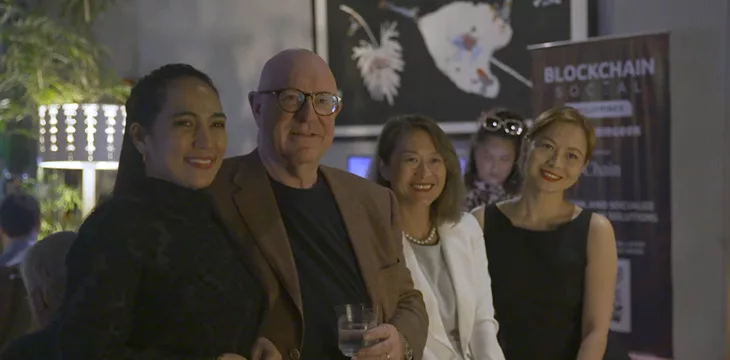|
Getting your Trinity Audio player ready...
|
While it is an undeniable feat to become the first-ever nation to fully harness the capabilities of blockchain technology, the priority of countries in Asia goes beyond this.
The Blockchain Social Philippines event held at the Manila House Private Club in Bonifacio Global City, Taguig, in November saw experts, enthusiasts, and tech disruptors gather to cement their commitment to further innovation through blockchain technology with an aim to develop industries, promote inclusion across sectors, and bridge economic divide.
Asia is a favorable region in terms of blockchain adoption, thanks to its active gamers, who are being seen as critical players that will help drive the technology into the mainstream.
“So, the Philippines, for example…this market has become like a growing hub for gamers,” said Global Impact Fintech (GIFT) ASEAN Vice Chair Nicole Nguyen.
The booming Asian gaming market isn’t the only one interested in exploring blockchain, with Elevandi Japan co-founder and CEO Takeshi Kito saying there has been growing interest in the technology among various industries over its ability to provide greater transparency.
“Blockchain can create more transparent and maybe cheaper financial services, so that will be huge value,” he pointed out.
Kito believes that more industries will jump into the blockchain revolution as governments and industry players further showcase what the technology can do, which will trigger a positive response from the public and would lead to sectors getting into Web3.
“Actually, the Japanese government is also pushing Web3 technology and its development, but of course, we still have some challenges such as tax issue and regulation, and we also need to educate the public and the general people,” Kito said on the sidelines of networking event powered by nChain.
While governments have launched initiatives pushing for blockchain mass adoption, the private sector has been lending a hand to ensure their success, and UNISOT is among those who took the initiative to aid this goal.
With its expertise in supply chain management, UNISOT hopes to bring more accountability to the Philippines’ supply chain using blockchain, which aims to make the production and distribution of commodities more transparent.
“So UNISOT do the supply chain traceability by using the power of blockchain. So a big problem in supply chain today is the visibility across the whole supply chain,” said UNISOT AS CFO Torje Vingen Sunde, adding that the firm plans to showcase this blockchain use case in the agricultural sector to empower Filipino farmers.
“By really letting the farmers release their data onto this global data layer, they can now actually earn money on their data,” Sunde said.
With major plans crafted to fast-track the Philippines’ digitalization, the country should rely on not just any blockchain in the market but one that offers unbounded scalability.
“When you’re running government transactions and you’re running government sovereign overlay networks, to secure those transactions and keep them private, you need to be able to operate it at scale, and you need to be able to operate it at scale over long periods of time,” said nChain Co-founder and Executive Chairman Stefan Matthews.
In preparation for future projects with the Philippine government, Matthews said the BSV blockchain is making groundbreaking updates and testing of its Teranode.
“So the proofs that we’re undertaking at the moment are gonna be very important for, I hope, the future of this country and the implementation of our technology in this country,” he noted.
While the government and private sector are actively developing digitalization initiatives, Gwennovation CEO Gwyneth Manalo emphasized the need to ensure that the public has adequate knowledge of blockchain technology and its use cases beyond digital currency.
She also recounted how her curiosity about the blockchain ecosystem pushed her to learn further about the space on her own, which she hopes fellow Filipinos do as well.
Watch: The Philippines is ready for blockchain tech, nChain Chairman Stefan Matthews says

 02-21-2026
02-21-2026 




